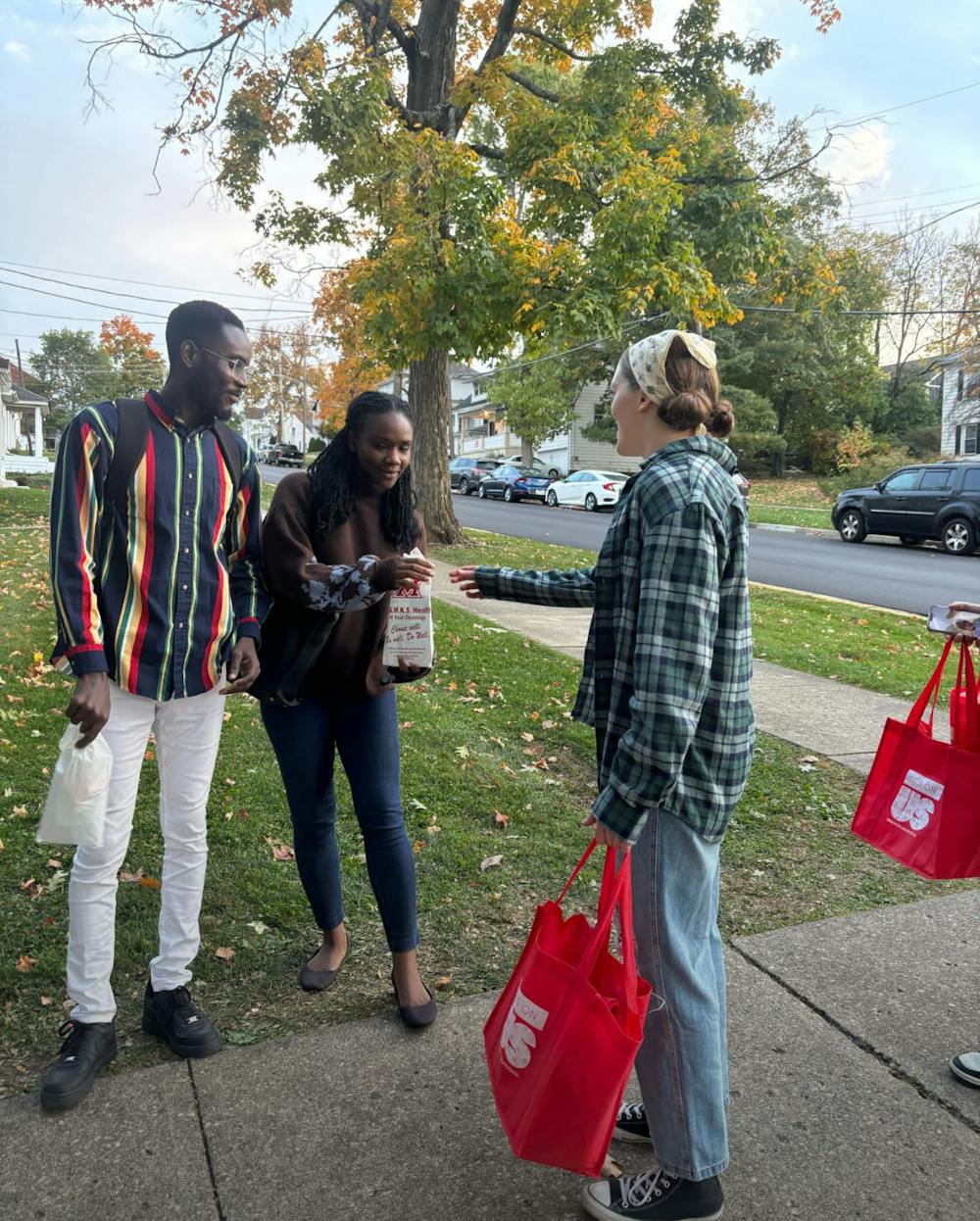For almost 1,000 off-campus students, Halloween trick-or-treating didn’t involve stepping foot outside. Instead of Snickers and KitKats, they received condoms, Narcan and fentanyl testing strips on their doorsteps.
These “goodie bags” were courtesy of the H.A.W.K.S. Peer Health Educators through their annual “reverse trick-or-treat” event. Twice a year, the H.A.W.K.S. spends roughly 150 hours putting together the bags and delivering them to students. The spring event is known as “Safe Spring Break.”
Leslie Haxby McNeill, assistant director of Student Wellness, has run the H.A.W.K.S. program for more than 20 years and has supervised the distribution of goodie bags for nearly 10.
“H.A.W.K.S has been around since 2003,” Haxby McNeill said. “Their mission is to find ways to share information with students about health and wellness and engage them in conversation. It’s not just, you know, here’s the information. They would dress up and knock door-to-door with information about sexual assault, alcohol and drugs.”
This year marked the first time Narcan and fentanyl testing strips were included in the bags. Elizabeth Sims, a junior social work major and H.A.W.K.S. co-vice president of operations, said she believes the additions are beneficial across the student body.
“It’s been a really big hit with all the students,” Sims said, “especially now that cannabis is legal in Ohio. We’re finding that a lot of students aren’t buying it from dispensaries, which is when things can get shaky. There is a much higher chance of contamination with fentanyl.”
According to data from the CDC, the overdose rate amongst young adults ages 18-22 has increased 22% between 2018 and 2022. This trend is said to be driven by cheap, potent opioids like fentanyl that other street drugs are laced with.
Haxby McNeill emphasized the importance of the testing strips for underage drug consumers.
“While it is legal now, that still leaves everybody under 21,” Haxby McNeill said. “Where are they going to get their weed: A dealer. While it might not intentionally be laced, we still want to have those strips available so that people can test everything.”
While the goodie bags received a positive response across campus, some students don’t understand why including Narcan and testing strips is necessary.
“At tabling events, students have said that they don’t need Narcan,” Haxby McNeill said. “What they don’t realize is that it’s not for them. It’s for them to help somebody else, just in case.”
Haxby McNeill also said bystander education has been a crucial part of the H.A.W.K.S. mission.
Enjoy what you're reading?
Signup for our newsletter
“The bystander piece is so important,” she said. “Here’s the thing; we don’t want to promote illegal drug use, but we do want to normalize using these tools to help people. I don’t want anything bad to happen to a student.”
In addition to testing strips and Narcan, this year’s bags included magnets highlighting sexual assault resources and the signs of alcohol poisoning, tissues, a stress ball, a consent-themed chip clip, a face mask and condoms. The bags also included pamphlets for dog therapy and other wellness resources on campus.
Summer Holt, a junior finance major, received one of the goodie bags and said it was impactful.
“I thought the bags were really important,” Holt said. “I think the Narcan was a good inclusion because you never know what could happen or who would need it, whether it be your roommate or just someone passing by. I think it could definitely save a lot of lives.”
Sims said that prior to including the new items in the bags, there was a lot of student interest in the products.
“When we would do free giveaways, people were always asking about Narcan and testing strips,” she said. “It’s a great thing to have but it can be really expensive. So the fact that we are able to provide these free things for our students means that we are all safer.”




